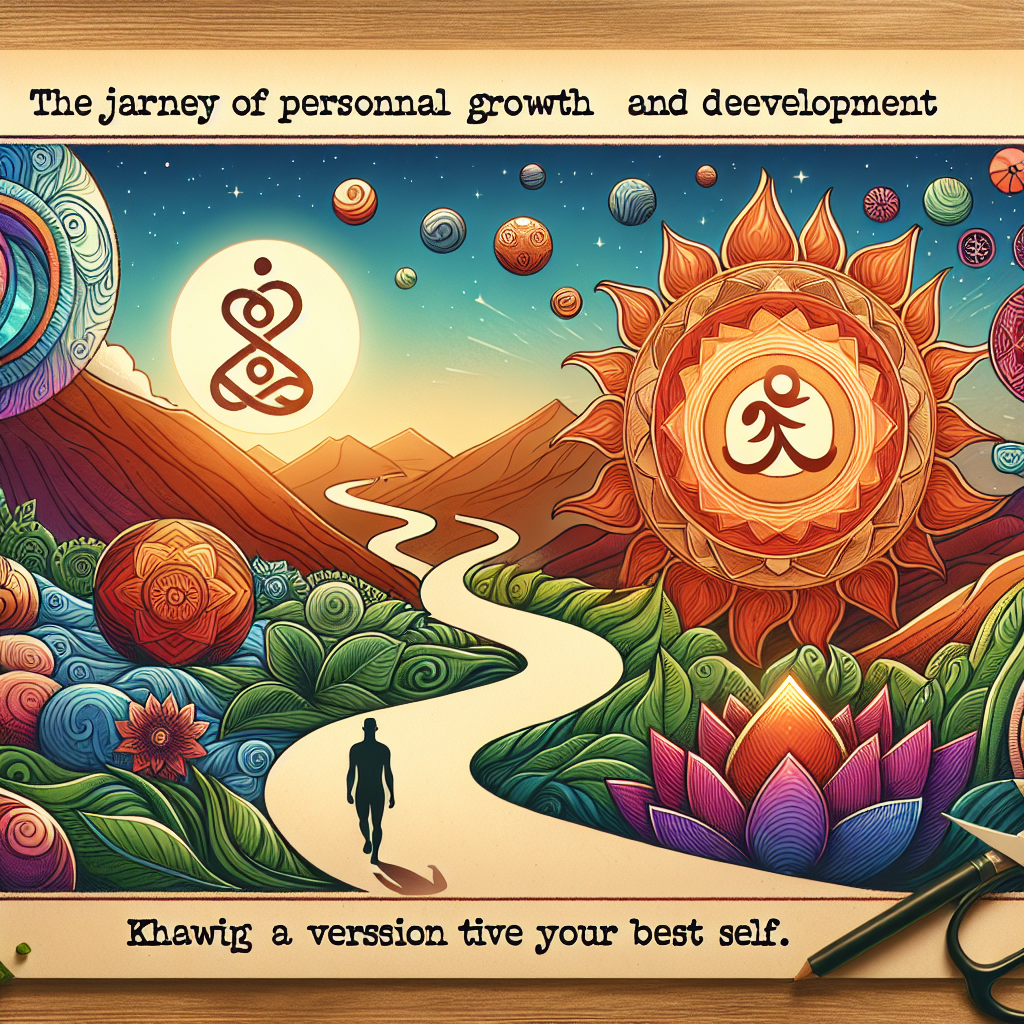Introduction to Karma and Mindfulness
Karma and mindfulness are concepts that, while rooted in ancient philosophies, have gained significant importance in contemporary discussions about personal growth, spirituality, and psychological well-being. Karma, often defined as the law of cause and effect in the universe, posits that our actions—whether they be good, bad, or neutral—have consequences that shape our future experiences. Mindfulness, on the other hand, is the practice of being present and fully engaged with the moment, cultivating a heightened state of awareness and acceptance of one’s thoughts and feelings.
In a world that is increasingly fast-paced and chaotic, integrating the understanding of karma with mindfulness can lead to profound shifts in how we navigate our lives. By cultivating mindfulness, we can better recognize our patterns of behavior and their consequences (our karma), paving the way for personal evolution. This article will explore the intersection of karma and mindfulness, emphasizing how these two concepts can work together to foster a deeper awareness of our actions, thoughts, and emotional responses.
Understanding Karma
The Concept of Karma
Karma originates from ancient Indian philosophy and is essential to the frameworks of Hinduism, Buddhism, and Jainism. The term itself means "action" or "doing." However, its implications extend far beyond mere physical actions to include words, thoughts, and intentions. In essence, karma encapsulates the moral law of the universe, suggesting that every action creates a ripple effect, influencing our future experiences.
The three primary types of karma are:
Sanchita Karma: This represents the accumulated karma from all our past actions. It is the sum total of our life’s actions and their effects whether in this life or past ones.
Prarabdha Karma: This is the portion of accumulated karma that is currently being experienced in this life. It’s the karma that determines our current circumstances and challenges.
- Kriyamana Karma: This refers to the actions we are currently taking that will shape our future experiences. In this context, every choice we make now has implications for our karma going forward.
The Ripple Effects of Actions
An essential understanding of karma is its infinite, interconnected nature. When we act, speak, or even think, we create energy that interacts with the universe. Positive actions can yield positive results, while negative actions may lead to undesirable outcomes. Importantly, karma isn’t merely about retribution; it embodies a system of moral responsibility where learning and growth play critical roles.
Moreover, karma is not a form of punishment or reward meted out by a higher power; rather, it’s an inherent principle of existence. It serves as a natural mechanism guiding our ethical behavior and personal responsibility. Understanding this can empower us to view challenges as opportunities for growth rather than mere suffering.
The Role of Mindfulness
What is Mindfulness?
Mindfulness has its roots in Buddhist meditation practices, where the aim is to cultivate concentrated attention on the present moment. Kabat-Zinn, a pioneer of mindfulness in the West, defines it as "the awareness that arises from paying attention, on purpose, in the present moment, without judgment." Mindfulness involves adopting a curious and open mindset, allowing us to experience life as it unfolds rather than being preoccupied with the past or future.
Mindfulness in Daily Life
Incorporating mindfulness into daily life can take many forms—from meditation and deep breathing exercises to simply being present while engaging in everyday activities. The practice encourages us to slow down and observe our thoughts and feelings without reactivity. This observation can lead to greater emotional regulation, allowing us to respond to situations with clarity rather than impulse.
Research has shown that mindfulness can have numerous benefits, including reduced stress, improved focus, increased emotional intelligence, and overall enhanced well-being. By fostering our capacity for mindfulness, we’re better equipped to navigate life’s complexities and cultivate a deeper understanding of our motivations and actions.
The Interplay Between Karma and Mindfulness
Cultivating Awareness of Actions
At its core, the integration of karma and mindfulness emphasizes awareness of our actions and their consequences. When we practice mindfulness, we develop the ability to observe our thoughts, behaviors, and emotional responses. This heightened awareness allows us to recognize our habitual patterns and the karmic implications of our actions.
For instance, a mindful approach to anger may involve recognizing the initial surge of emotion without reflexively reacting. Instead of letting anger dictate our response, mindfulness provides the space to choose a more constructive action. This awareness can lead to a more favorable outcome and potentially alter future karmic cycles.
Learning from the Past
Karma teaches us that our past actions have shaped our present circumstances. Mindfulness encourages us to reflect on these experiences without judgment—acknowledging feelings of regret or guilt, but not allowing them to define us. We can use our understanding of karma to grow; by recognizing how certain behaviors led to outcomes we wish to change, we can consciously alter our actions moving forward, thereby shifting our karmic trajectory.
Developing Compassion
An essential component of both karma and mindfulness is developing compassion—for ourselves and others. Mindfulness practice can help us cultivate empathy, allowing us to see the interconnectedness of all beings. When we recognize that everyone is subject to the same karmic principles, it becomes easier to approach relationships with understanding and kindness.
For example, when someone wrongs us, mindfulness allows us to pause and consider the potential karmic reasons behind their actions. Perhaps they are acting out of their own pain or ignorance. This understanding fosters an environment of compassion rather than retaliation, leading to a positive karmic exchange.
Practical Ways to Cultivate Karma and Mindfulness
Mindful Meditation Practice
One of the most effective ways to cultivate mindfulness is through meditation. Set aside regular time each day for a mindful meditation practice, allowing your thoughts to flow without judgment. Focus on your breath and observe any feelings or thoughts that arise. This practice enhances self-awareness and enables greater understanding of how your actions impact your life.
Intention Setting
At the start of each day or meditation session, take a moment to set intentions for how you wish to act. This acts as a conscious commitment to working towards positive karma, aligning your actions with your values. Reflect on what kind of energy you want to put into the world—kindness, patience, or understanding—and let this guide you throughout your day.
Reflective Journaling
Keeping a mindfulness journal can be an excellent method for exploring your thoughts and behavior. Dedicate a few minutes each day to write about your feelings, actions, and any karmic lessons learned throughout the day. This reflective practice will enhance self-awareness, enabling you to see patterns and recognize the impact of your choices.
Incorporating Kindness into Daily Actions
Mindfulness encourages us to be aware of how our actions affect others. A great way to evolve karmically is to incorporate acts of kindness into your daily routine. Whether it’s a compliment, a thoughtful gesture, or offering assistance, these small actions create positive karma and foster meaningful connections.
Mindfulness in Difficult Situations
In challenging situations, practice using mindfulness to observe your immediate reactions. Instead of reacting hastily, take a moment to breathe and reflect on the situation. Ask yourself how a mindful approach to this challenge could shift the outcome. This technique fosters emotional regulation and allows you to respond more constructively.
Conclusion: The Journey of Personal Evolution
Integrating karma and mindfulness into our lives invites profound personal transformation. By cultivating mindfulness, we develop awareness of ourselves and the impact of our actions, enabling us to take responsibility for our karma. As we become more conscious of our choices, we empower ourselves to evolve positively, breaking cycles of negative behavior and nurturing compassion.
Personal evolution is an ongoing journey. By embracing the principles of karma and mindfulness, we not only enrich our lives but also contribute positively to the lives of those around us. This interconnected journey fosters a sense of belonging, purpose, and growth that is essential in our quest for a fulfilling life.
FAQs
What is karma?
Karma is a spiritual concept that represents the law of cause and effect. It suggests that every action—mental, verbal, or physical—creates consequences that shape our future experiences.
How does mindfulness relate to karma?
Mindfulness enhances our awareness of our actions and their consequences (karma). It allows us to observe our thoughts, feelings, and behaviors without reactivity, enabling us to make more conscious choices that can positively influence our karma.
Can mindfulness change my karma?
While mindfulness itself doesn’t change past karma, it enables you to develop awareness and understanding of your present actions. By consciously choosing your behavior in different situations, you can influence your future karma positively.
Is karma the same as punishment?
No, karma is not about punishment or reward. It embodies a system of natural consequences where our actions have ripple effects. It is a mechanism for learning and growth rather than a system of retribution.
How can I start practicing mindfulness?
To start practicing mindfulness, try incorporating meditation into your daily routine, reflecting on your thoughts and feelings without judgment. You can also practice mindfulness through deep breathing, paying attention to your surroundings, and being present in daily activities.
What are the benefits of combining karma and mindfulness?
By combining karma and mindfulness, you cultivate greater self-awareness, compassion, and emotional regulation. This integration can lead to personal growth, improved relationships, and a deeper understanding of life’s challenges and opportunities.
It seems you might have wanted to provide a prompt or request something specific. How can I assist you today?, #Karma #Mindfulness #Cultivating #Awareness #Personal #Evolution, #Karma #Mindfulness #Cultivating #Awareness #Personal #Evolution, 1734035093, karma-and-mindfulness-cultivating-awareness-for-personal-evolution





